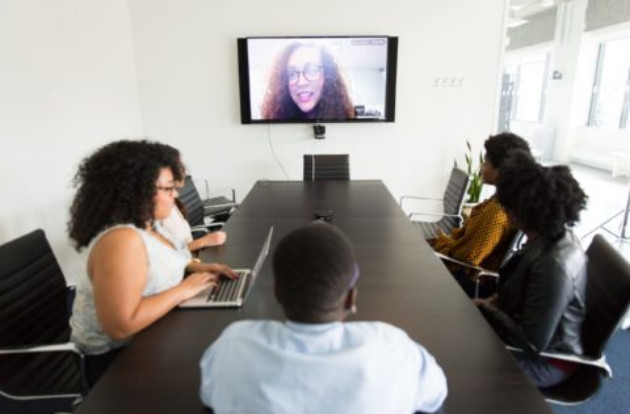
The Benefits (and Challenges) of Virtual Events for Digital Marketing Agencies
The COVID-19 pandemic forced many businesses to transition to virtual events in 2020. This adaptation had already begun — increasing globalization and the ubiquity of digitalization led many businesses to pivot years ago.
But is it in your best interests to continue virtual events throughout 2021? Or should you encourage in-person events again? The truth is the risks are still high and may be for a while. Even if you plan for an on-site conference, you need to be able to switch to virtual on a moment’s notice.
Let’s face it — virtual conferences and livestreamed workshops are here to stay. Fortunately, there are substantial benefits to virtual events if pain points are addressed. Here’s how to prepare for the unique challenges of hosting and marketing an online event.
6 Benefits of Virtual Events
Virtual events can be meaningful if your team curates the experience for a wide range of expectations and experiences:
- Optimize your brand. “Virtual events are a perfect opportunity to establish, build or optimize your brand and identity,” says Karen Vance, Director of Digital & Content Marketing for The Deciding Factor. “And not just at the event itself. Promoting the leadup to the event takes every marketing tool at your disposal. You’ll use email, social media, landing pages, search ads, display ads, retargeting and SEO to sell tickets or generate buzz.” Once you’ve attracted prospective customers to attend, use the event itself to build recognition and widen your circle of influence.
- Most in-person events are limited by the size of the venue. Digital platforms, however, allow you to scale as large and fast as you need to, and to invite global participants. Travel logistics are no longer an issue. Plus, language and cultural differences are more manageable with technology.
- Co-branding credibility. Arrange the virtual event so you’re partnering with another brand or sponsor. The partnership adds credibility and can help attract notable speakers. “Aside from asking brands affiliated with your event to market it on their channels, you can also incentivize event marketing through a lead-share agreement,” according to Hubspot. “A lead-share is when you allow a brand you co-market with to get the same list of leads you’ve gained from a co-branded event or campaign.”
- Inclement weather, viruses and other external negatives factors are much easier to avoid with virtual events. You don’t have to worry about the health or safety of staff and guests.
- Insight, analytics and interest. Digital events offer easy access to analytics. You can see presentation views and track how many questions were asked during a session. Online dashboards provide engagement reports that show clicks, reactions, comments, impressions and more. You’ll be able to determine the efficiency and effectiveness of the event in real-time and boost your possible leads. You can also use email automation to send out post-show feedback surveys and monitor social media mentions to see if people are discussing your event.
- Save money. Hosting a digital event costs less to plan and execute than in-person events. You avoid expenses for transportation, hotel stays, food, clothes, signage, merchandise, etc.
4 Challenges of Virtual Events
Virtual events are certainly not easy. There are challenges in executing them successfully:
- Time zones can be a barrier to access. Participants might not join if sessions occur overnight for them. Real-time interactions may be hindered if viewers rely on recordings.
- Modern life is one distraction after another. It’s easy to tune out or leave online events if they’re too long or the material isn’t easily digestible. Interactive features are critical for keeping attendees plugged in. According to Salesforce, engagement experience work groups can help focus the interest of people who were going to spend a day attending sessions and meeting others at a physical event. And it’s a good idea to stick to single-day events.
- Technology and accessibility. “Technology can be a blessing and a curse for both the host and the guest,” says Vance. Online events tend to be graphics heavy and reliant on browser compatibility. Bandwidth issues can lead to connection errors and buffering, and a large audience could even crash the server. In addition, a user’s entire experience may be uncomfortable or frustrating if they’re unfamiliar with the necessary technology, such as apps or artificial reality (AR) experiences.
- Remote attendees are obviously not in a room together! You lose those valuable one-on-one connections. It’s important to find alternatives to develop trust and familiarity. Facilitate meaningful interactions through small breakout sessions or individual video calls.
For More Information About Our Digital Marketing Agency
What is your next step is for hosting and marketing a successful virtual event? The Deciding Factor’s event marketing platform is purpose-built to empower you and event participants and to create the best possible experience.
Contact us to learn how to enhance your virtual event with powerful marketing capabilities and analytics.










